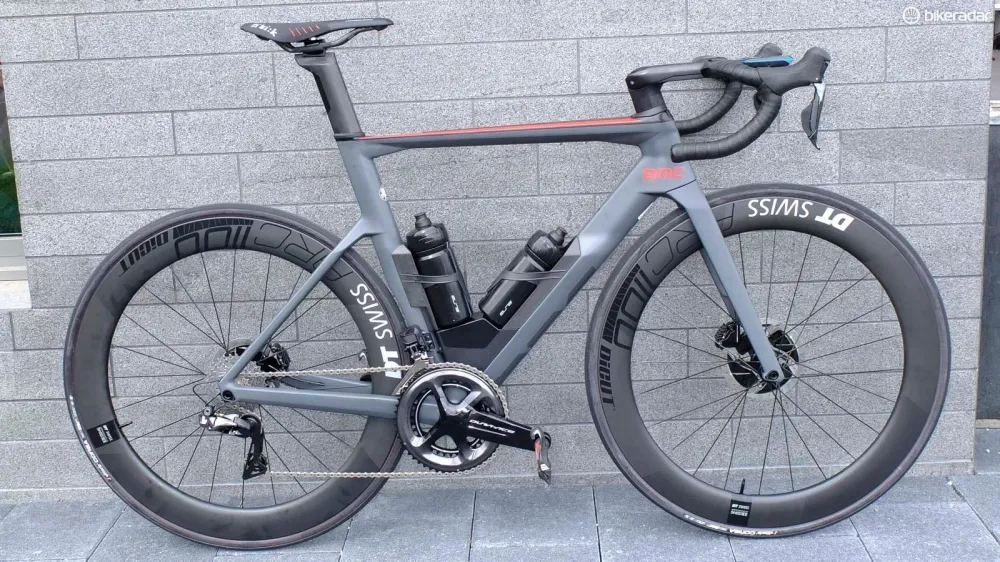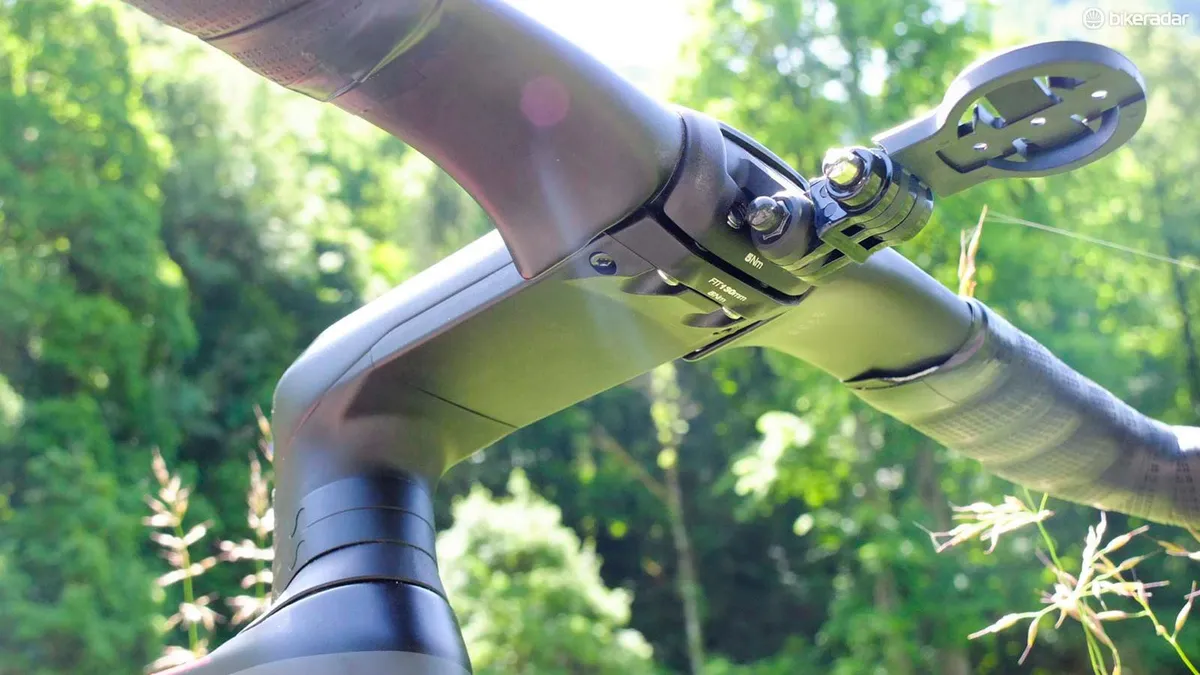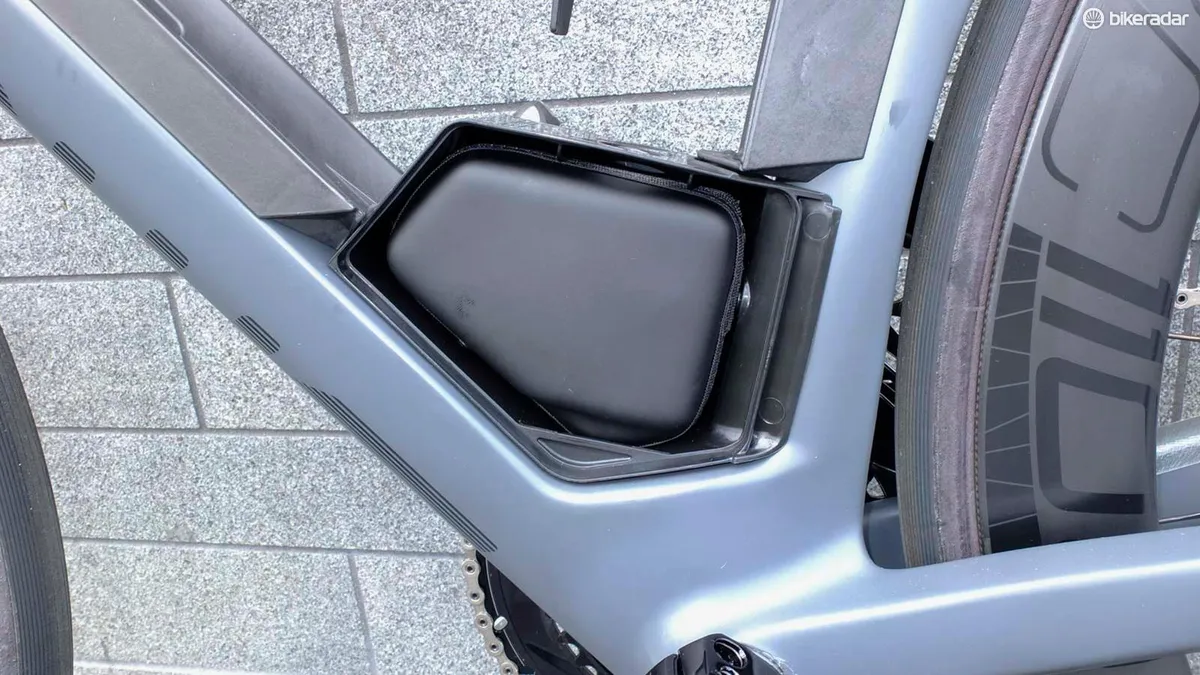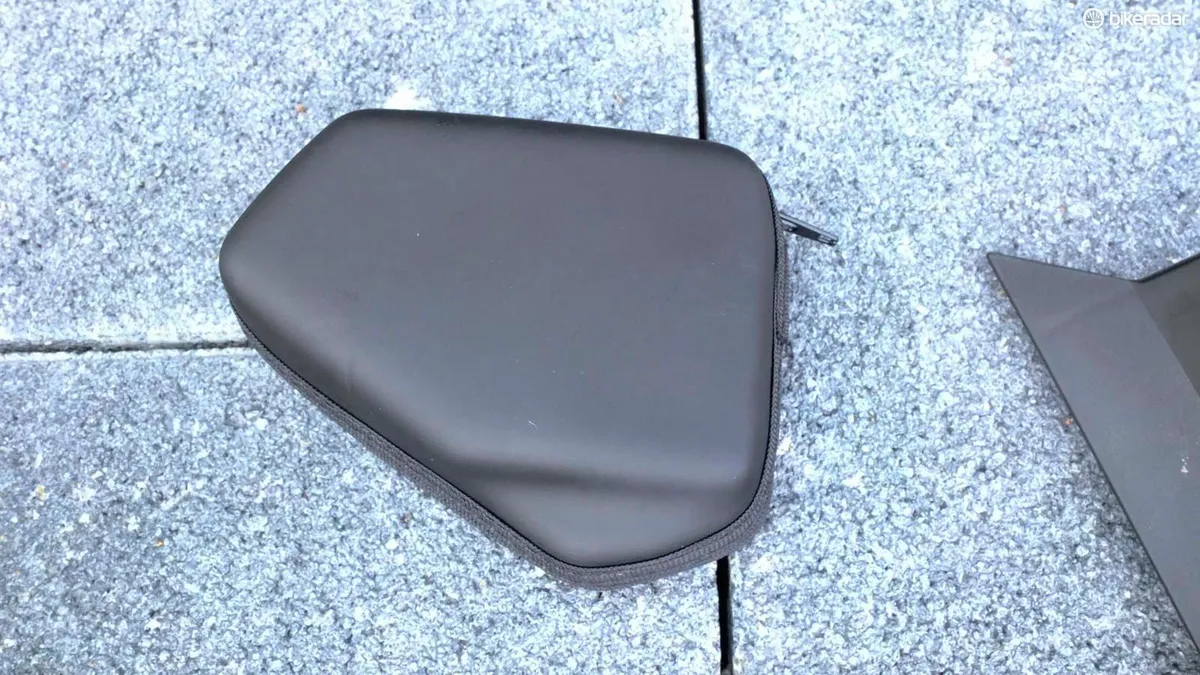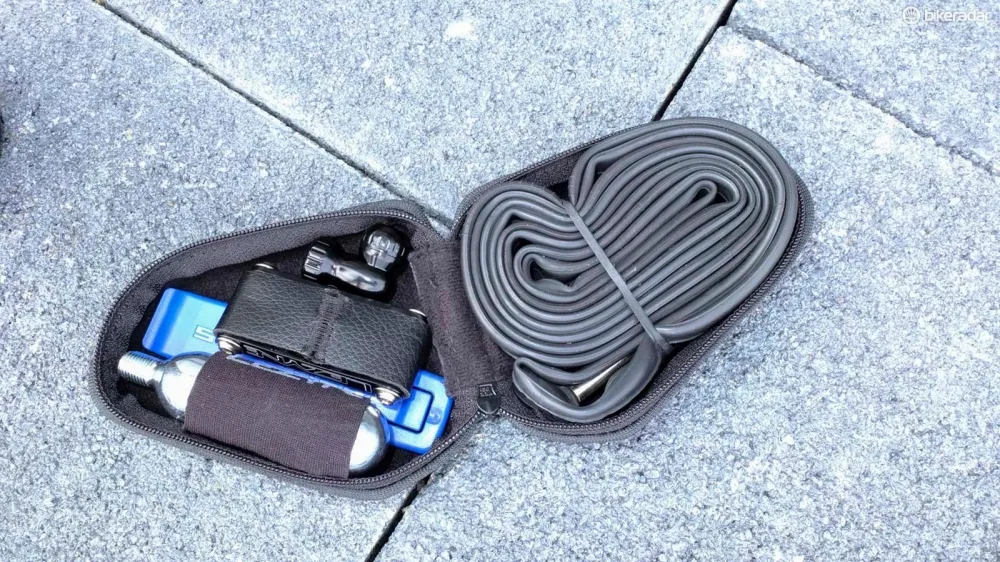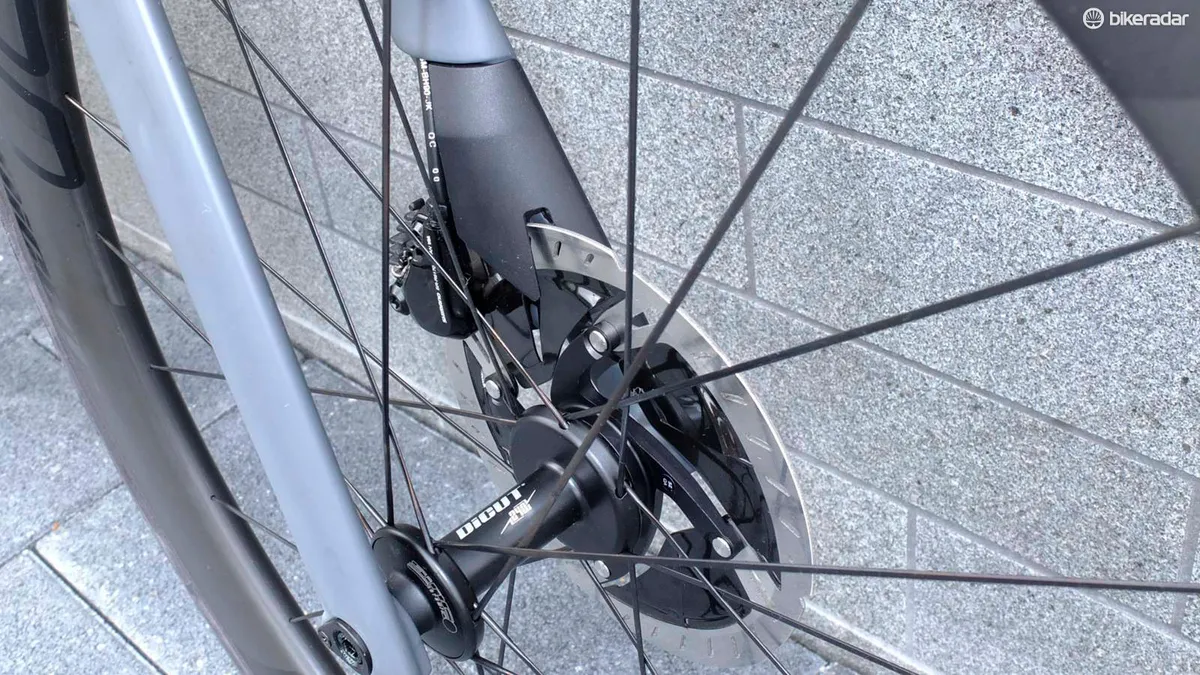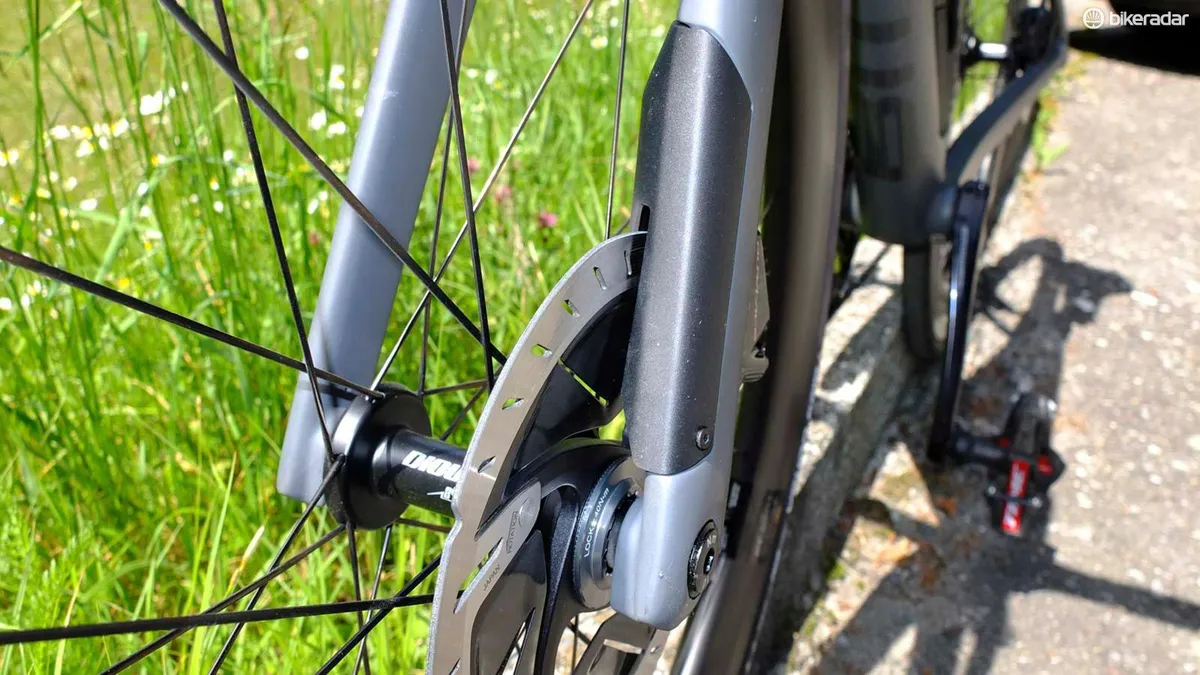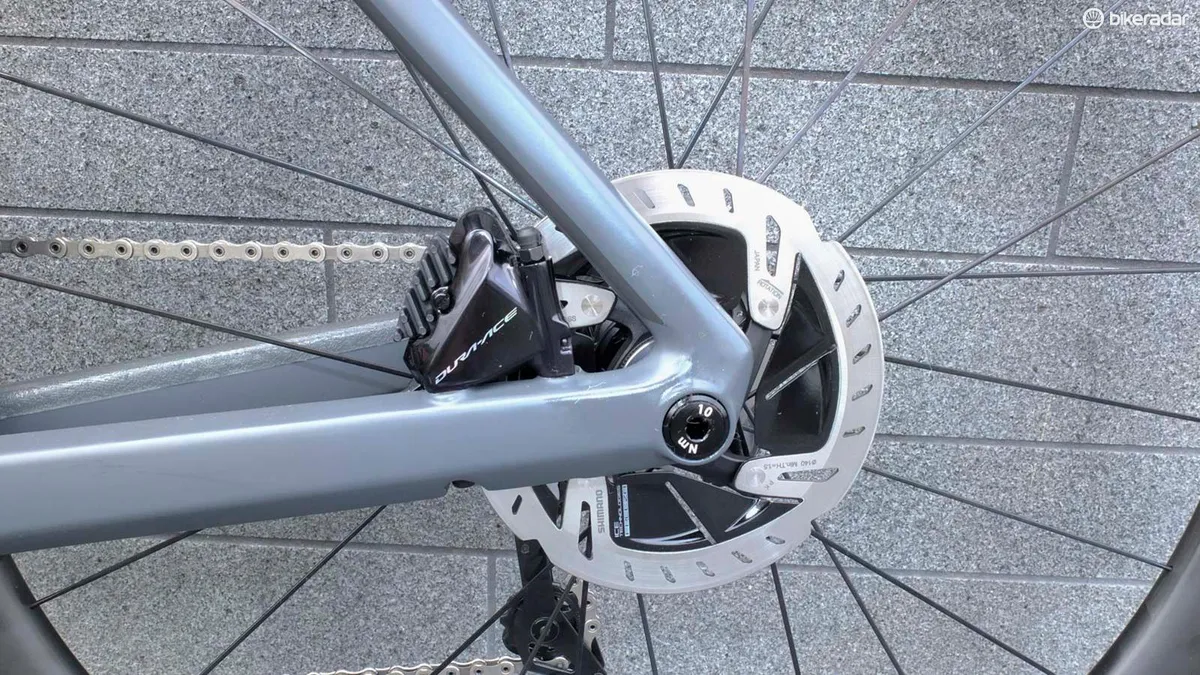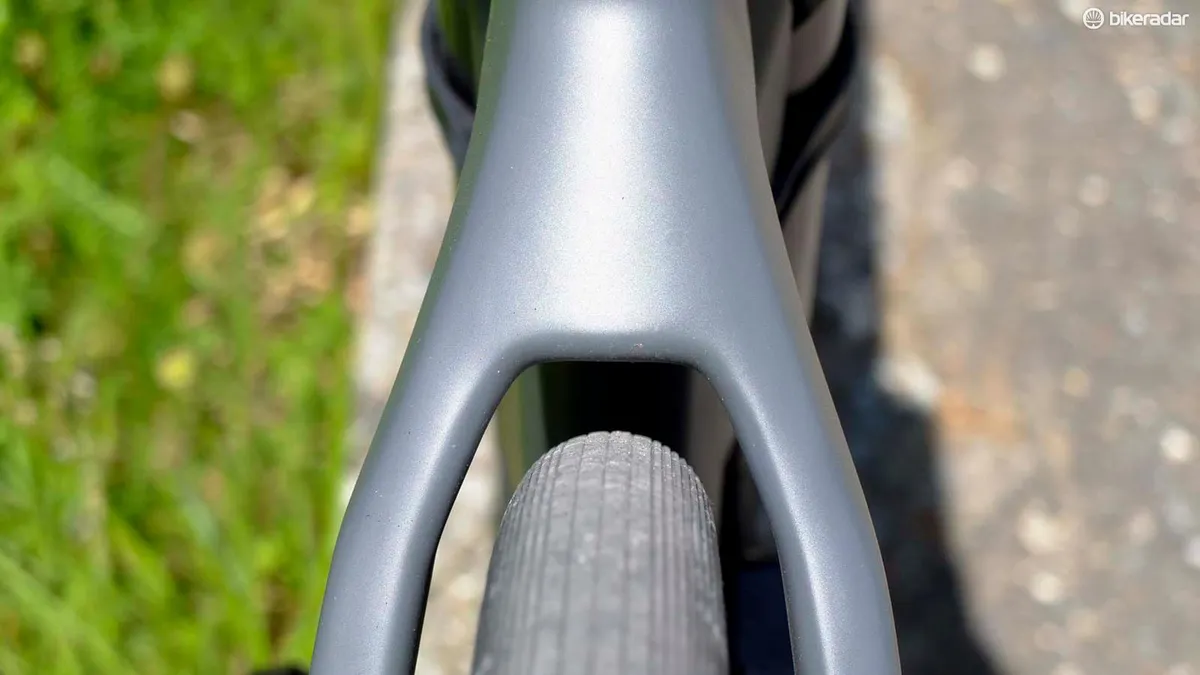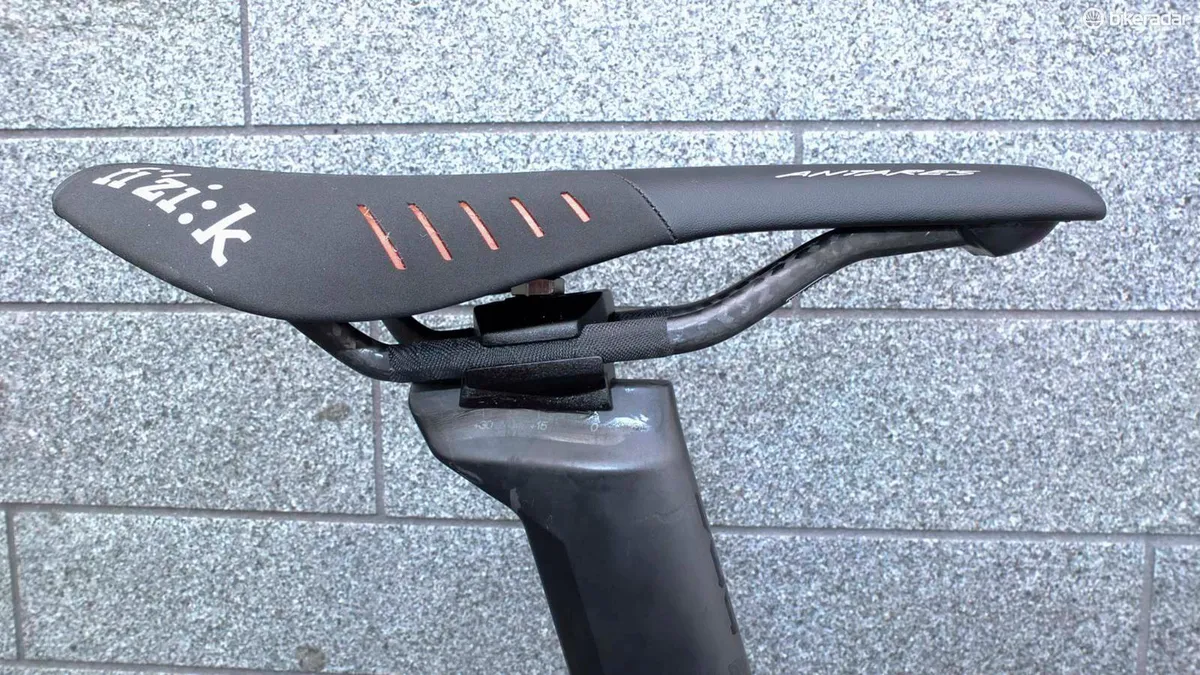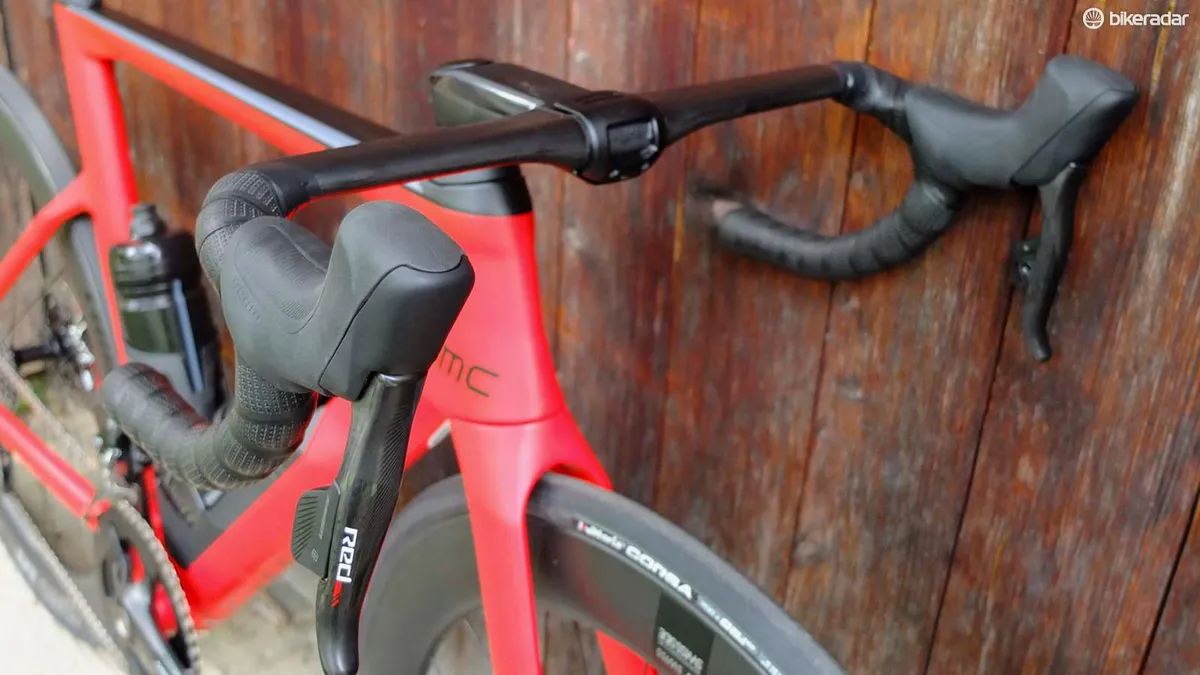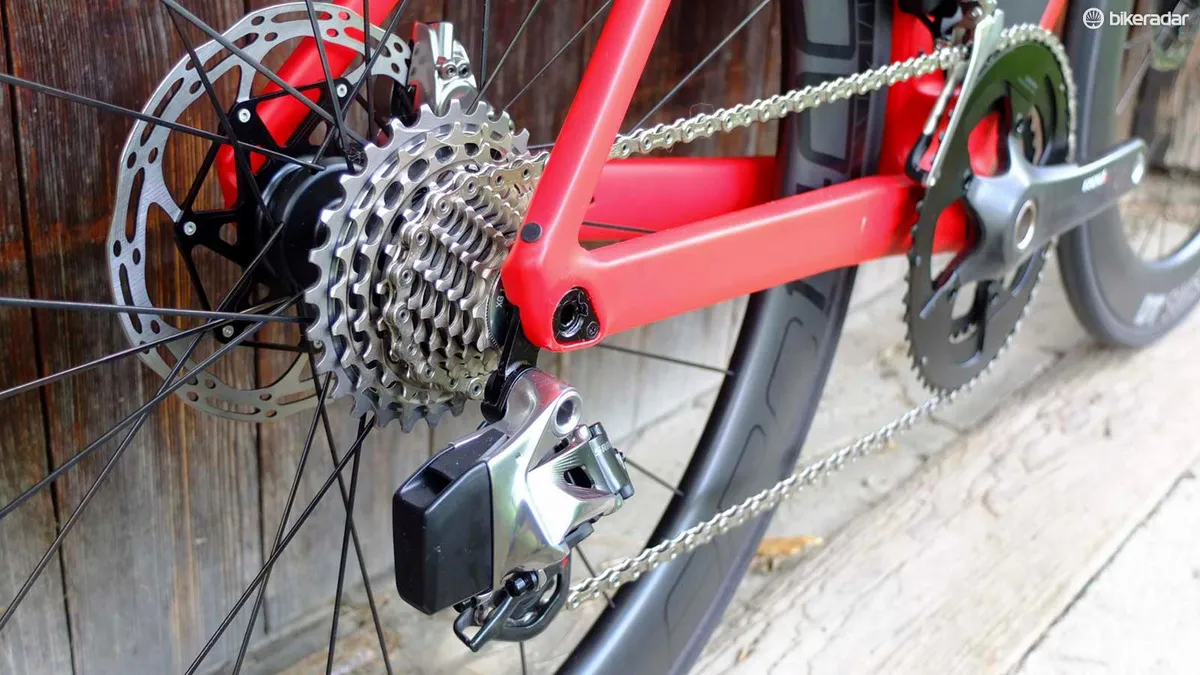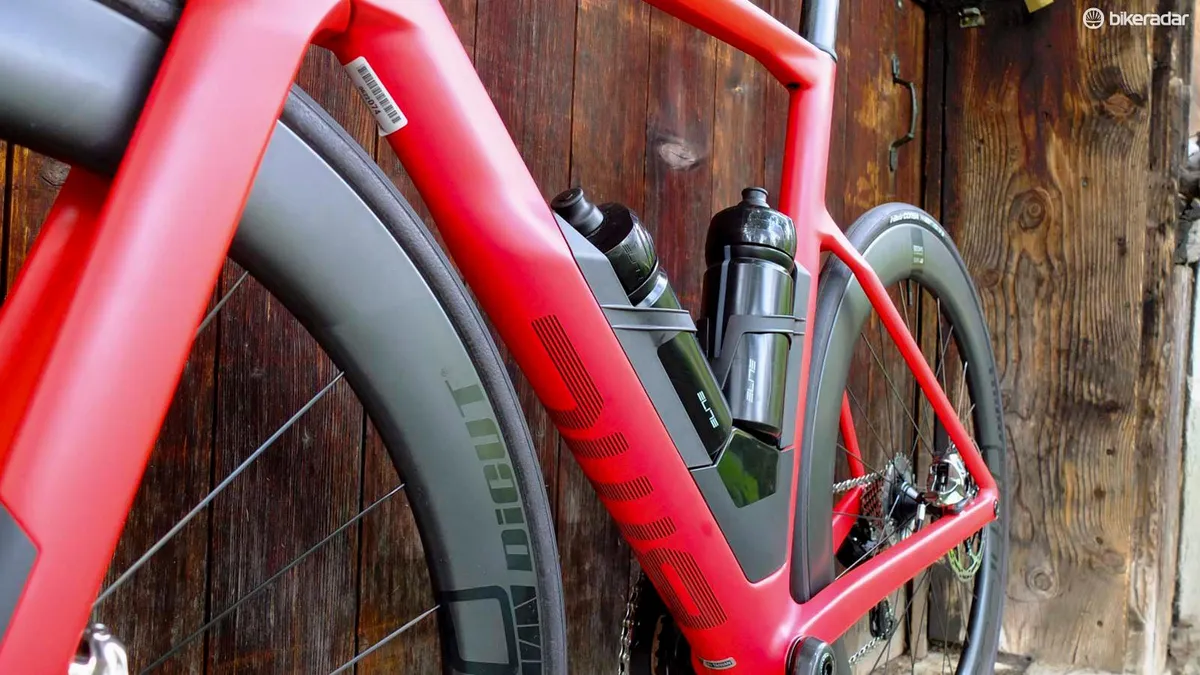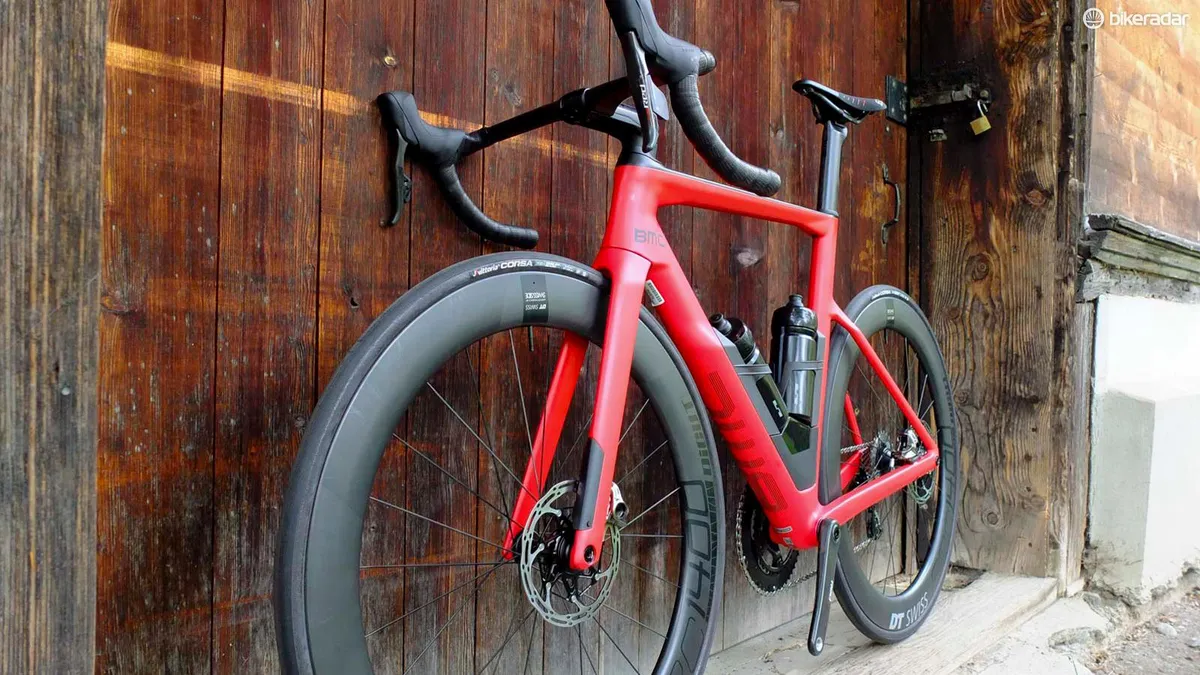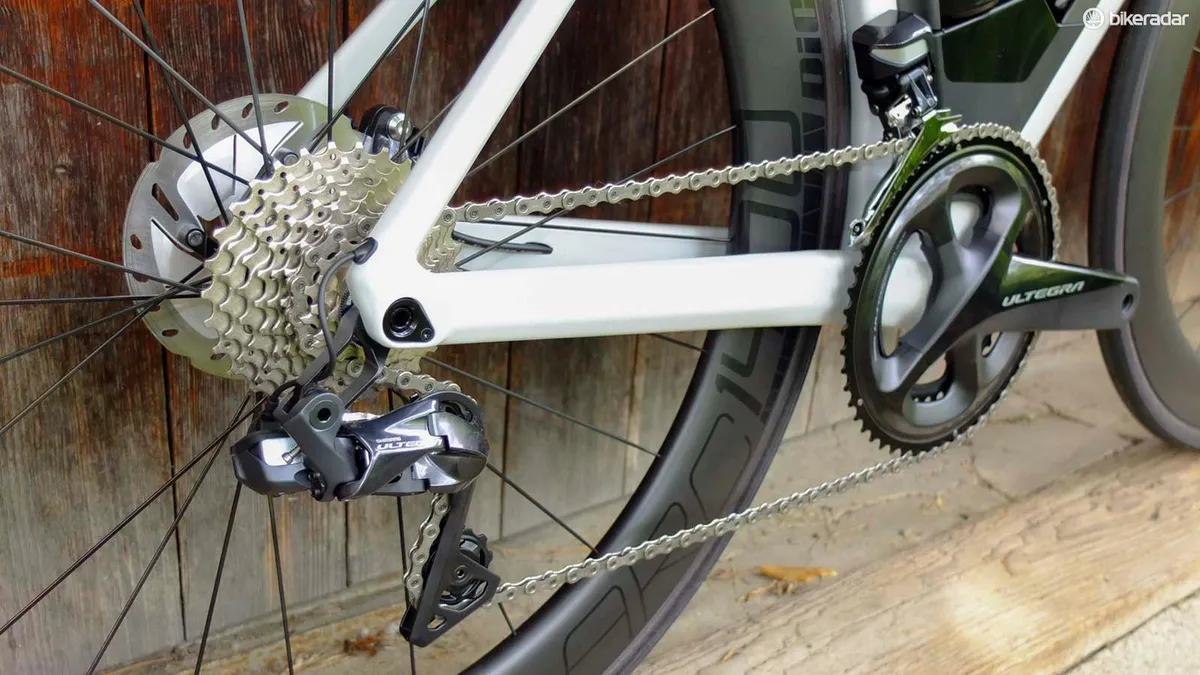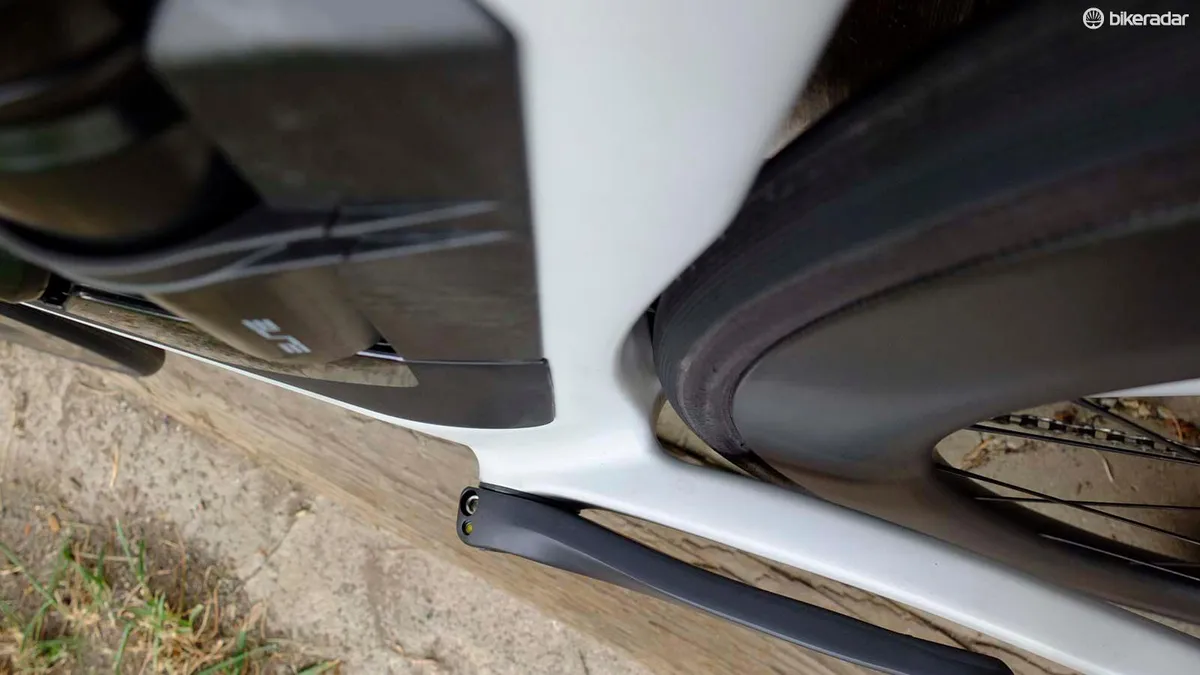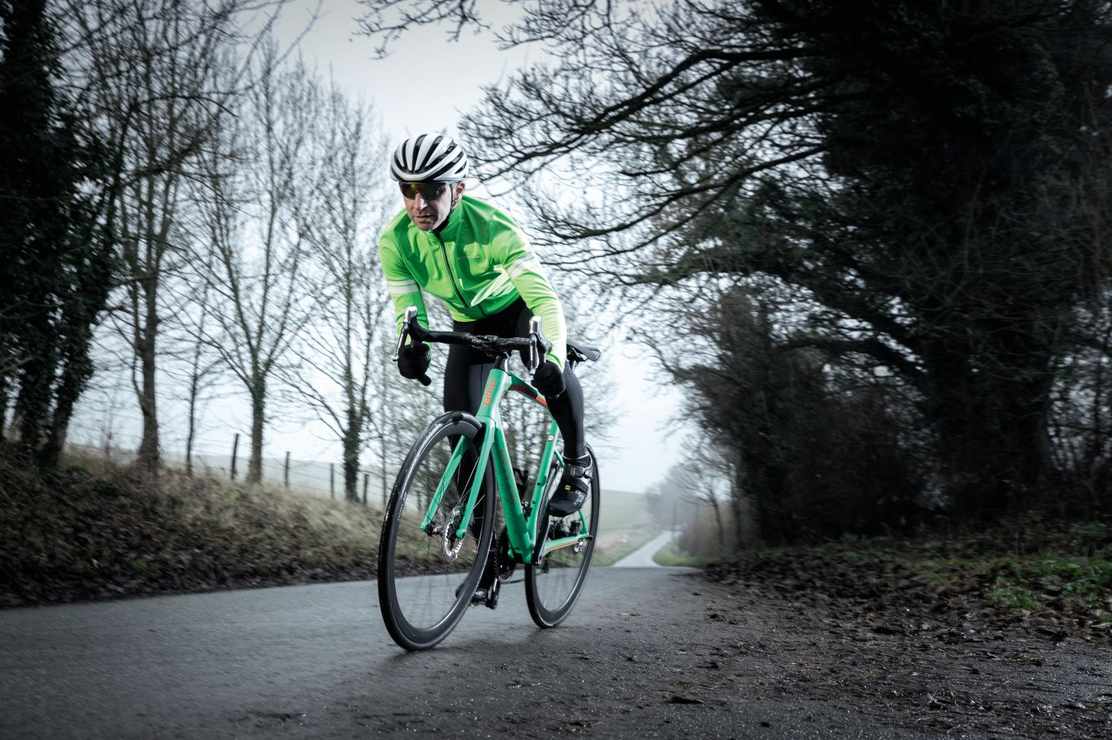Back in 2012, BMC brought us the first TMR01 (Timemachine Road 01), a bike, which in the context of the then fledgling aero road bike sector, was probably a little ahead of its time.
- BMC Timemachine Road 01 first ride review
- The new and improved BMC Teammachine ALR
- BMC's Roadmachine X is designed for even more adventure
The earliest aero road offerings were generally either ultra slim and flexy, or more efficient and rock solid (among others, Cervelo S5, Specialized Venge, Felt AR). It’s fair to say that the TMR01 fell in to the latter category.
It was quick, quite integrated, with effective power delivery and astonishingly powerful hidden V-brakes, but couldn’t claim low weight and all-day comfort among its attributes. By today’s standards it needed updating, and six years on, BMC releases the completely redesigned Timemachine Road 01.
BMC says 2018’s TMR01 is its fastest road bike, ever, with ultimate integration.
BMC Timemachine Road 01 design
The design aims were to gain free speed from aerodynamics, to be very accelerative with efficient power delivery, and to have speed compliance — basically more comfort while still going quickly, and to achieve it all in a sleek-looking, disc brake-only machine.
To use an automotive analogy, if BMC’s Roadmachine is a grand tourer, and the Teammachine SLR is a race car, then the Timemachine Road 01 would have to be a supercar.
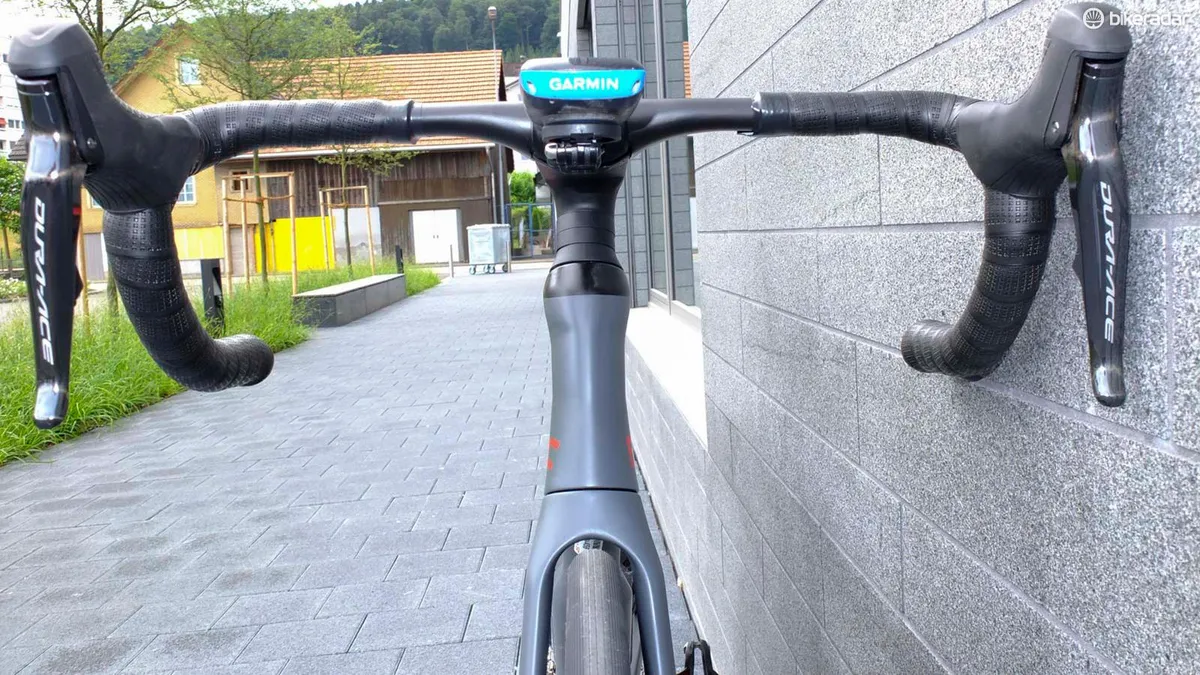
BMC claims that a 54cm frame, including derailleur hangers, weighs 940g, and the fork is 410g, which is heavier than the SLR01 Disc of course, but still good for an aero bike.
Unsurprisingly, the new bike majors on flat terrain, aerodynamics and pure speed, and is aimed at competitive, ambitious riders, but it’s designed to be more than just a one-trick pony.
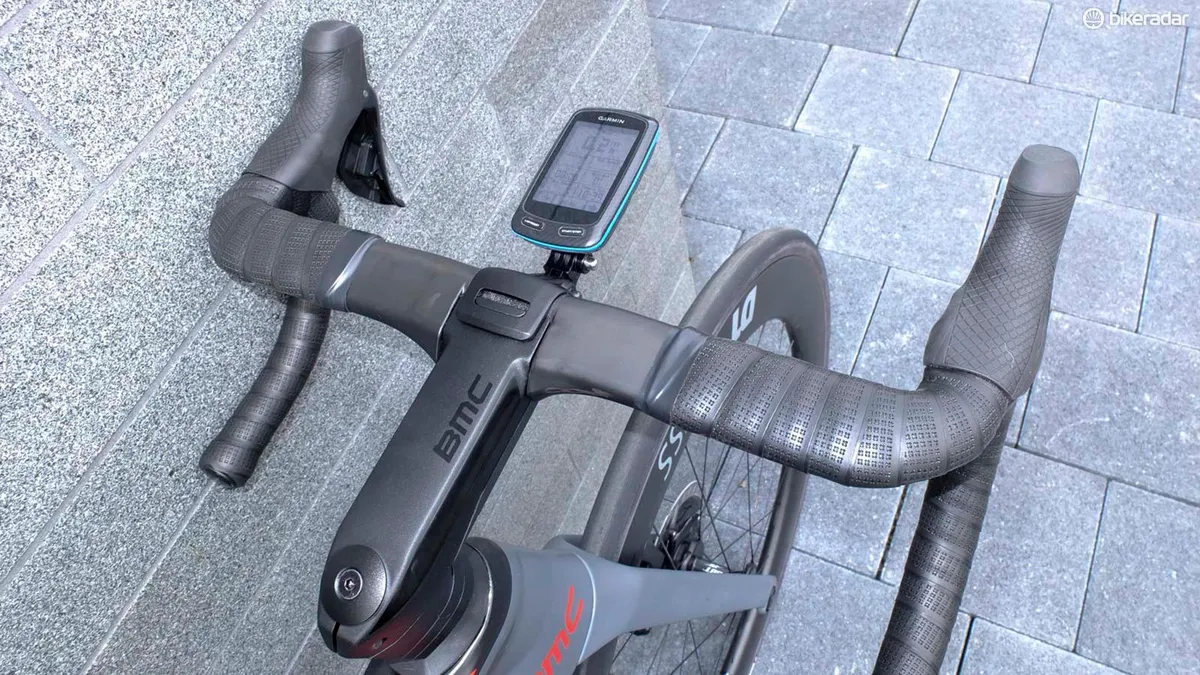
BMC says that a few years of design and testing have gone in to creating the new TMR01, with the design work carried out in its Impec Lab, using CFD (computational fluid dynamics) to lead the aerodynamic portion.
The velodrome next to the design office in Grenchen is a useful tool, and this, as well as a wind tunnel, was used to validate and finalise designs, which were further developed with BMC’s World Tour team.
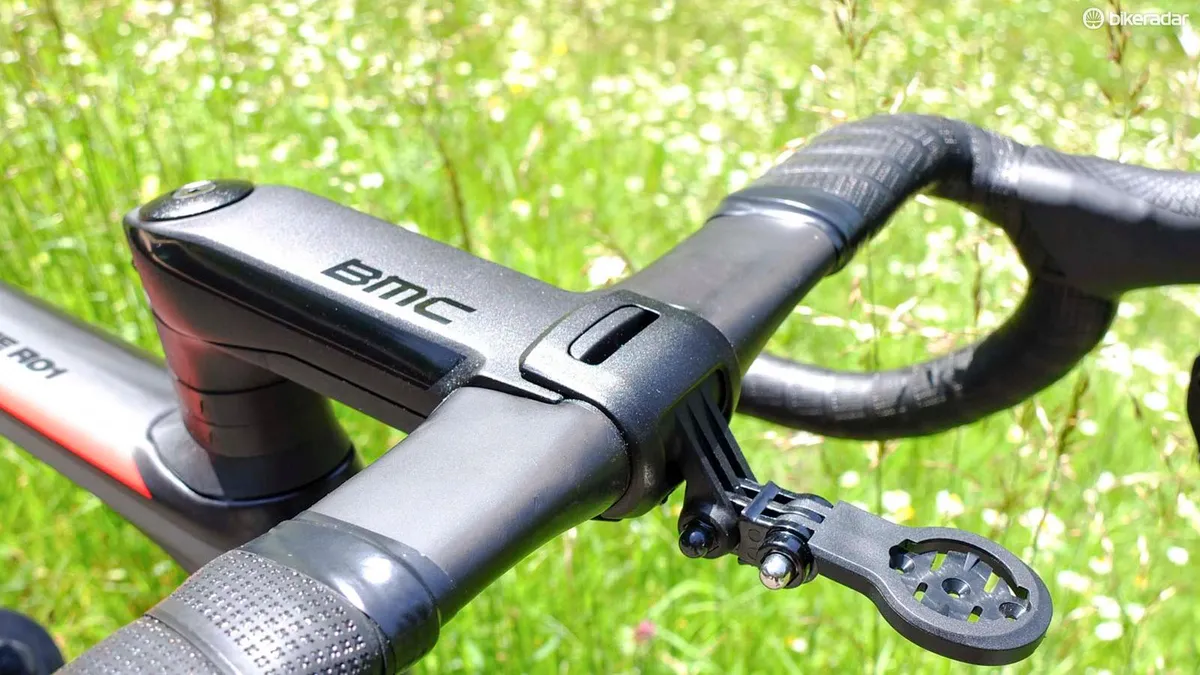
The bottom bracket shell is PF86, and the rear mech mount is BMC’s ultra light sandwich-style hanger, as introduced on the SLR01 last year. There are BMC’s own Ultra Light 12mm thru-axles at both ends, claimed to weigh just 55g for the pair, and the steerer tube is tapered from 1 1/8in– 1/4in.
BMC Timemachine Road 01 aerodynamics
Every tube profile on the new bike is optimised for aerodynamics at 0 degrees, but also takes in to account changing yaw angles, and tries to balance the numerous unavoidable compromises with the UCI’s design regulations.
The down tube to bottle transition was somewhere that BMC could save aerodynamic drag. The old bike was efficient at 0 degrees, but when adding a bottle and a side wind, it wasn’t so good. Any racing bike isn’t a complete system without bottles (or rider) present, so they had to be a design consideration.
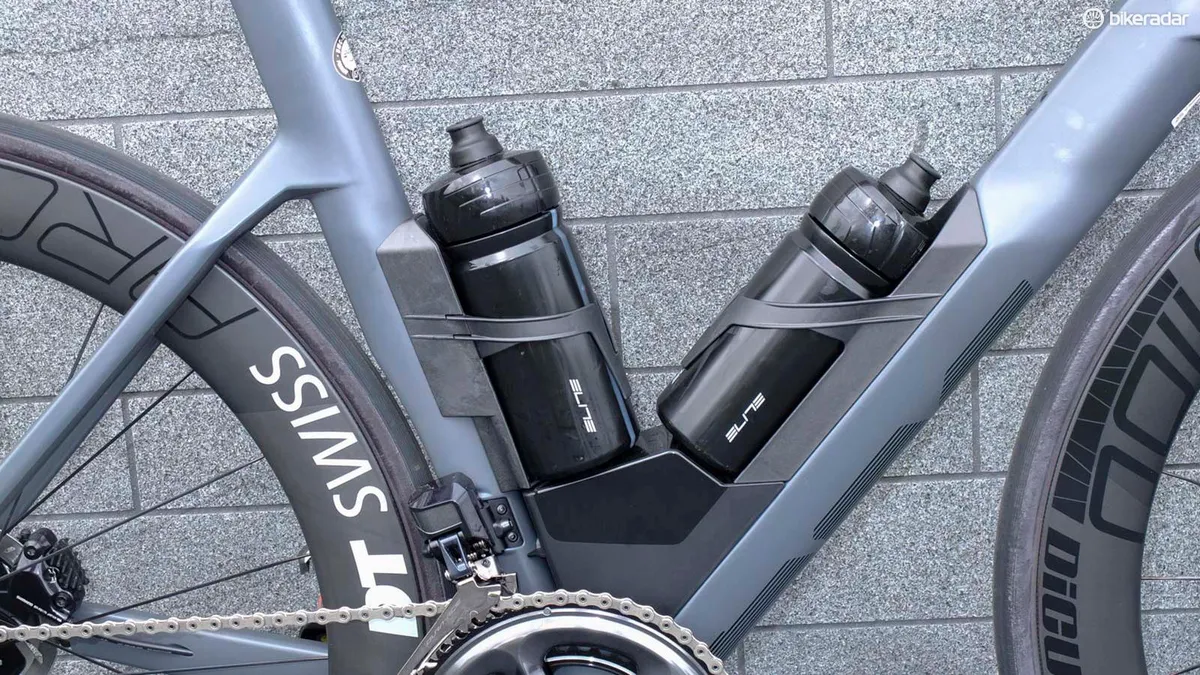
The Aero Module is part carbon fibre and was developed jointly with Elite. It comprises two proprietary bottle cages plus a storage box, and fills in much of the space between the lower part of the seat and down tubes, which are also shaped to blend perfectly with it. It’s designed to make the bike faster with it attached than without, and bikes come supplied with both the cages and bottles.
It’s possible to fit the three components in any combination, but the bike is more aerodynamically efficient the more you fit. When asked if BMC’s professional riders needed to keep their bottles on board approaching a race stage finish where they might be in contention, instead of discarding them, as is common practice, BMC’s design team maintained that its bike would be faster, but maybe the riders would want to empty their bottles first.
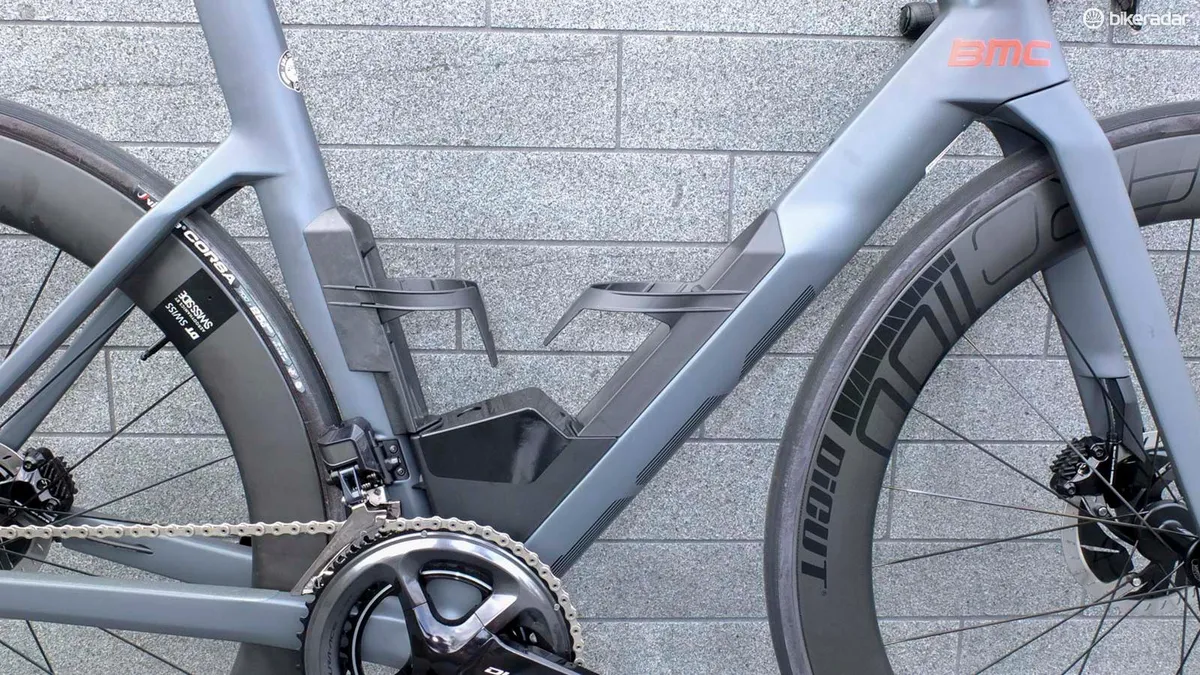
The storage box is right above the bottom bracket, keeping weight centred and low down, and is accessed by a button. It contains a zipped semi-rigid pouch that’s a perfect fit, and is prevented from rattling by internal ribs, holding an inner tube, CO2 canister and head, tyre levers and a multi-tool. The Di2 control box is also integrated in to the down tube, and is accessible via a recess within the down tube cage mount, and visible when the bottle is removed.
The new Timemachine Road has been developed around 25mm tyres, and accepts tyres with 28mm maximum inflated width. It comes with a triple offset aero seatpost, offering 0, -15 and -30mm offset by shifting the saddle clamp fore and aft.
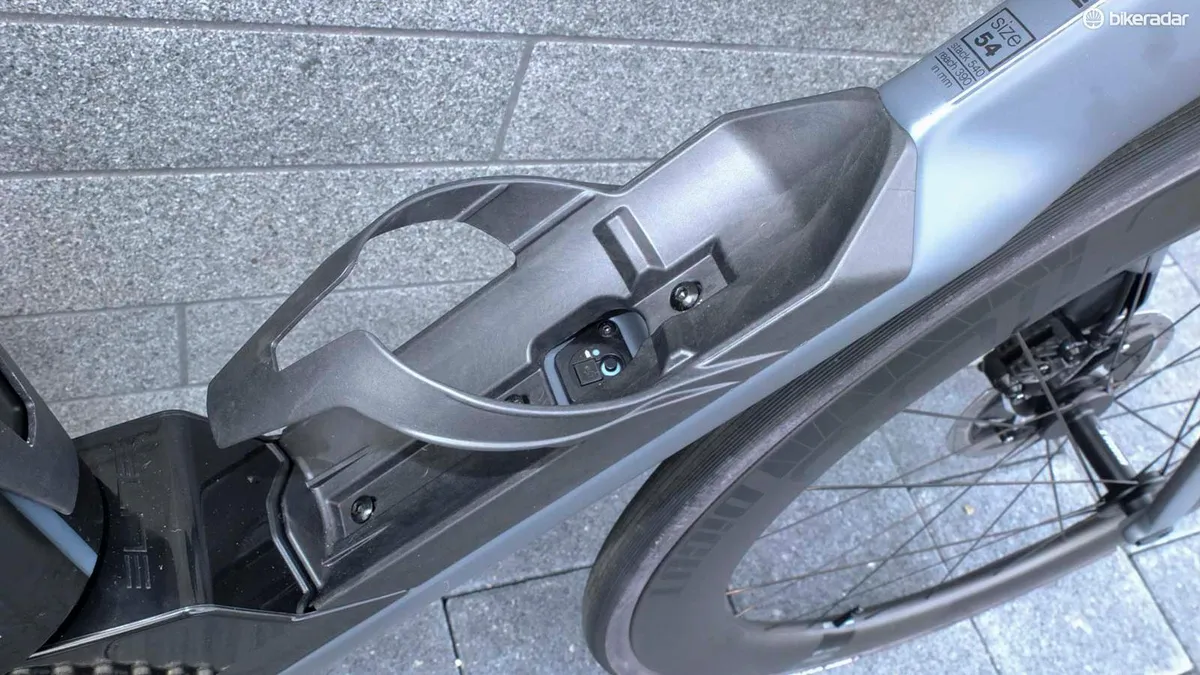
BMC Timemachine Road 01 up front
BMC’s ICS (aero Integrated Cockpit System), first seen on the Roadmachine, ensures that all cables and hoses are hidden within the stem, and they have no effect on the steering feel.
Specific headset top caps give clean lines, and two-part, interlocking puzzle spacers can be added or removed without the need to undo cables, and there’s enough intentionally slack cable within the system to permit adding up to two more spacers without a problem.
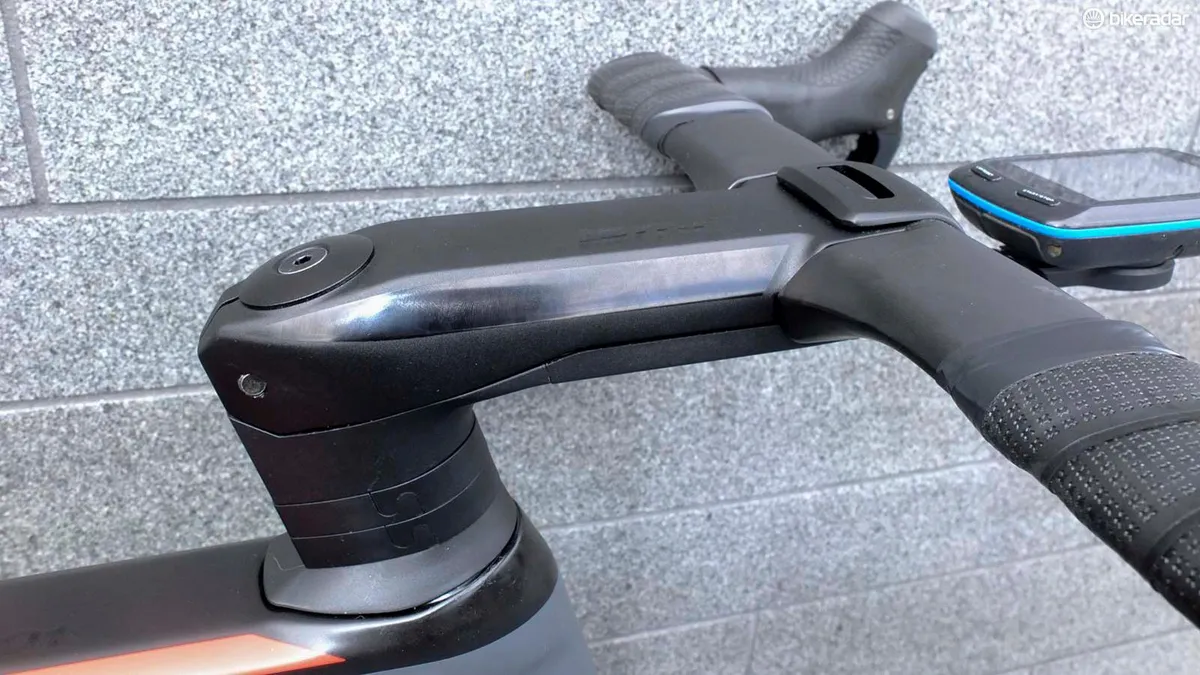
The Timemachine Road 01’s ICS stem is wider than previous versions and has a slimmer side profile, which together make it torsionally stiff, while adding compliance.
As before, the faceplate hooks in place at the top, with two reversed bolts securing it from behind at the bottom, maintaining very clean lines. Out front GPS/camera/accessory mounts slot in to the faceplate’s opening from behind before fitting, and come in several configurations.
The Timemachine Road 01’s separate bar and stem let you easily alter your position, the bar’s 25mm wide, round clamping area allowing +/- 9 degrees of rotational adjustment.
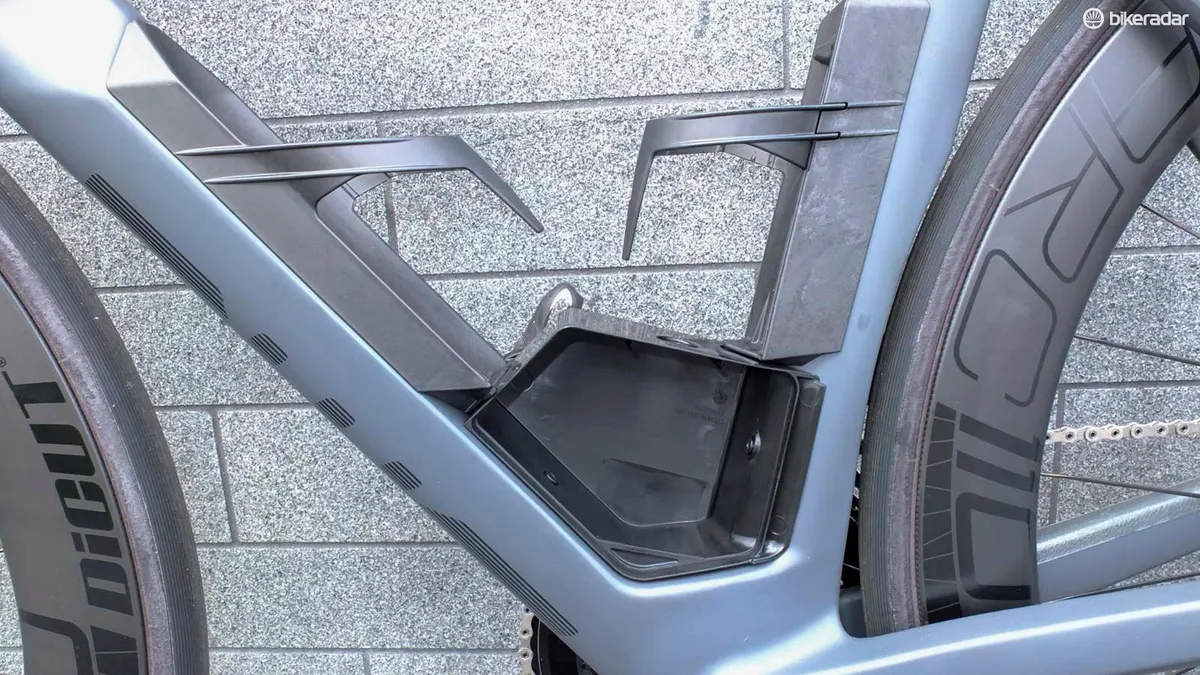
The handlebar has conventional width flat tops and long, compact drops, a flattened bend transition that’s angled for an additional hand position and cutaway corner for sprinting and climbing knee clearance.
The extended rear portions of the bar sweep back towards the stem and contain the internal cabling. Three bar widths (400, 420, 440mm) and four stem lengths (100, 110, 120, 130mm) should cater for all riders.
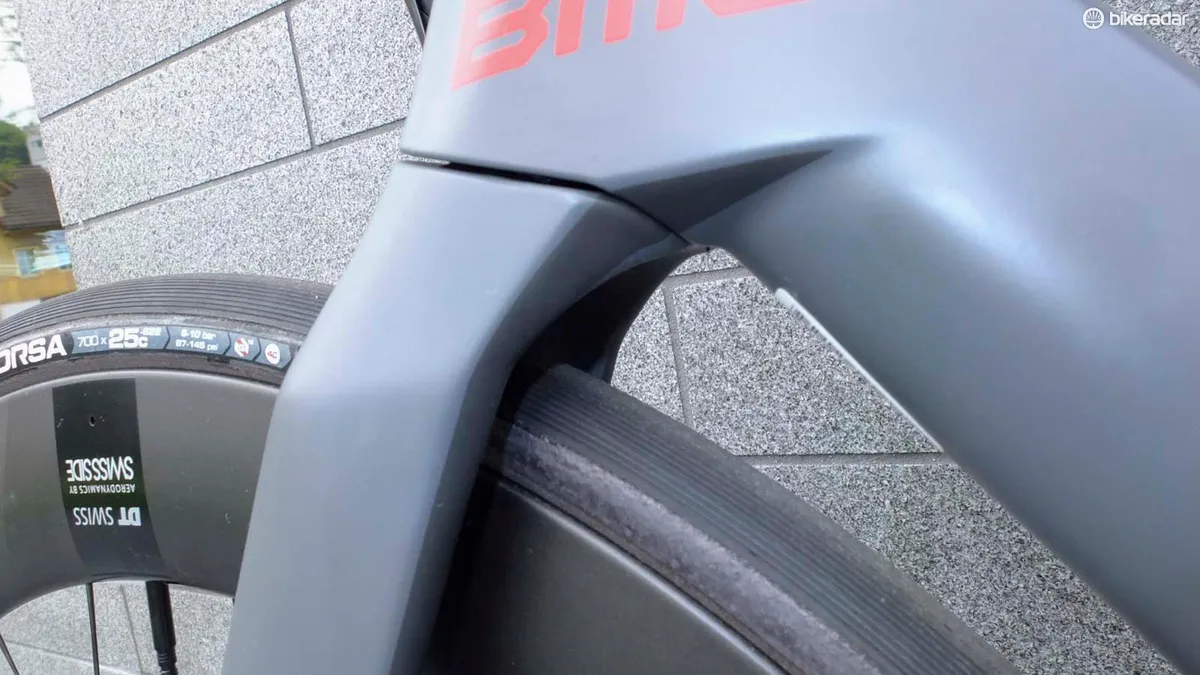
BMC Timemachine Road 01 brake fairing
Disc brake aerodynamics were also a big consideration, and the Timemachine Road 01 has a fairing integrated in to the left fork leg, which shields the disc caliper and hose from the oncoming wind, while the rotor spins in a slot within it.
The front brake is designed to use 160mm rotors only, while the rear brake caliper is not faired, and is a standard Shimano flat mount, but can be configured for 140mm or 160mm rotors. The frontal Aero Cover is easily removable for disc caliper adjustment.
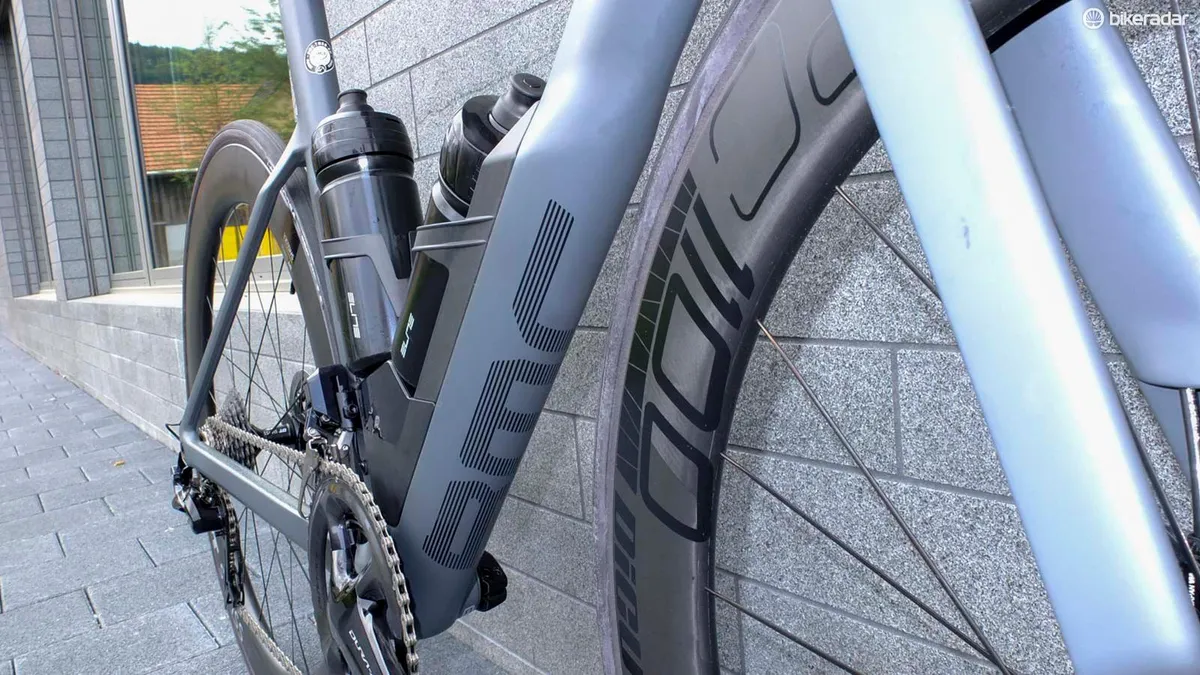
BMC Timemachine Road 01 performance comparisons
The Timemachine Road 01 gains speed compliance from the ICS stem, which measures 50mm wide and 30mm high, also its narrow asymmetric fork blades and customary dropped seatstays.
The new bike’s power transfer figures show that its bottom bracket stiffness and torsional stiffness are very similar to the SLR01 Disc, its fork’s lateral stiffness is a little less, but it has more vertical compliance.
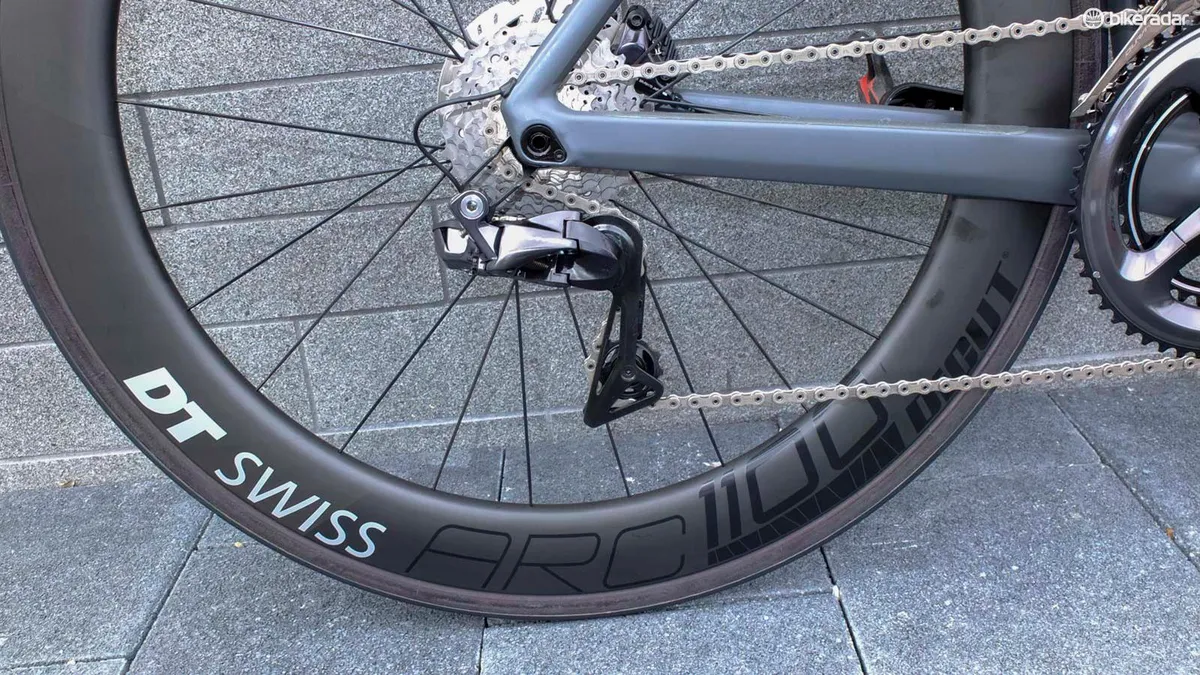
BMC’s real world drag testing used three different height riders, with, in effect, small, medium and large bodies. The percentage of the overall drag does of course vary by rider size, and testing was carried out at 40kmh/25mph, with all results compared directly to the same efforts on a BMC SLR01 Disc.
The same actual power meter (not an identical one) was used each time, with the same rider position on each of its bikes, wearing the same helmet and so on. Bottles were attached:
Damien, BMC engineer, small size
- SLR01: 251 watts
- TMR01: 245 watts = 2.5% less and -6 watts
Stefano, medium
- SLR01: 257 watts
- TMR 01: 249 watts = -3.2%, -8 watts
Michael Schar, BMC Team pro, large
- SLR01: 309 watts
- TMR01: 297 watts = -3.7% or -12 watts
Yaw angle drag testing at 40kmh/25mph in the wind tunnel showed the difference between an SLR01 Disc and the TMR01 with its aero module fitted. At higher yaw angles, the SLR01 Disc’s drag increases markedly between 10–15 degrees, whereas the TMR01’s is more linear:
- 0 degrees/83 watts
- 5 degrees/85 watts
- 10 degrees/87 watts
- 15 degrees/93.5 watts
The TMR01’s figures are far lower, with less drag at 15 degrees than the SLR01 at 0 degrees :
- 0 degrees/72.5 watts
- 5 degrees/73 watts
- 10 degrees/74 watts
- 15 degrees/76 watts
The difference between the two bikes is 11.5 watts at 0 degrees and a considerable 19.5 watts at 15 degrees.
BMC Timemachine Road 01 range
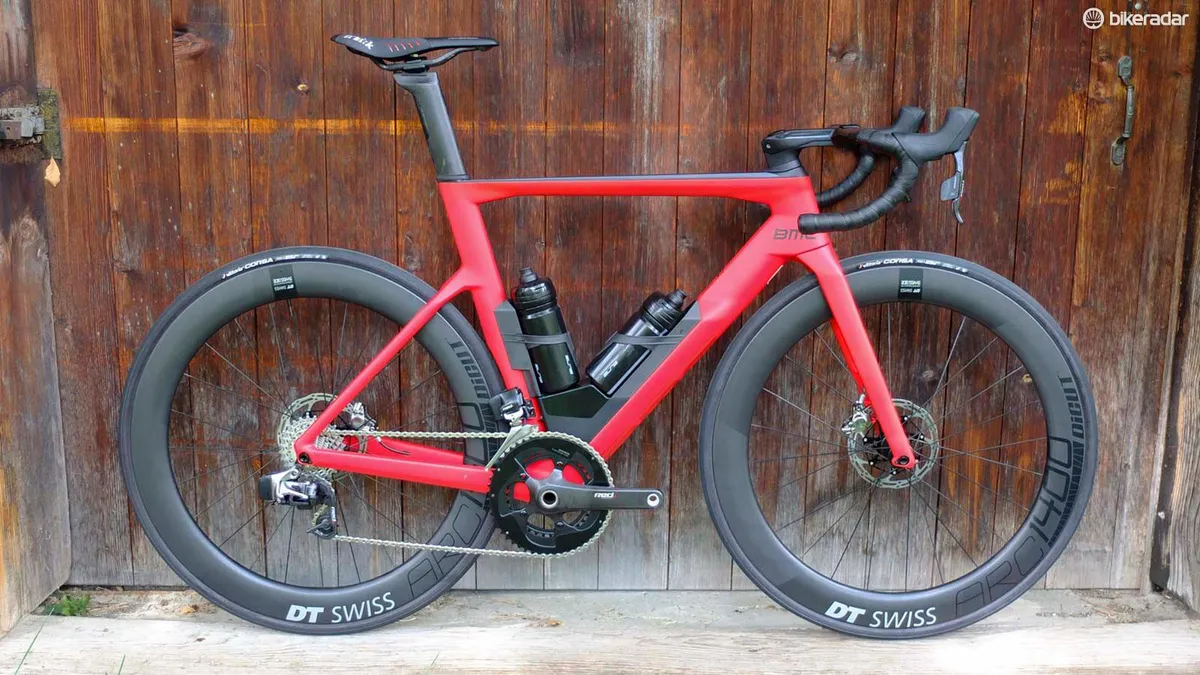
There are three new Timemachine Road 01 models, plus a frameset module.
Top of the tree is the Dura-Ace Di2-equipped ONE, with DT Swiss ARC 1100 Dicut wheels, followed by the Timemachine Road 01 TWO with SRAM Red eTap HRD and DT Swiss ARC 1400 Dicut wheels, and finally, the TMR01 THREE, which is the same but for Shimano’s Ultegra Di2 groupset and a slightly different saddle.
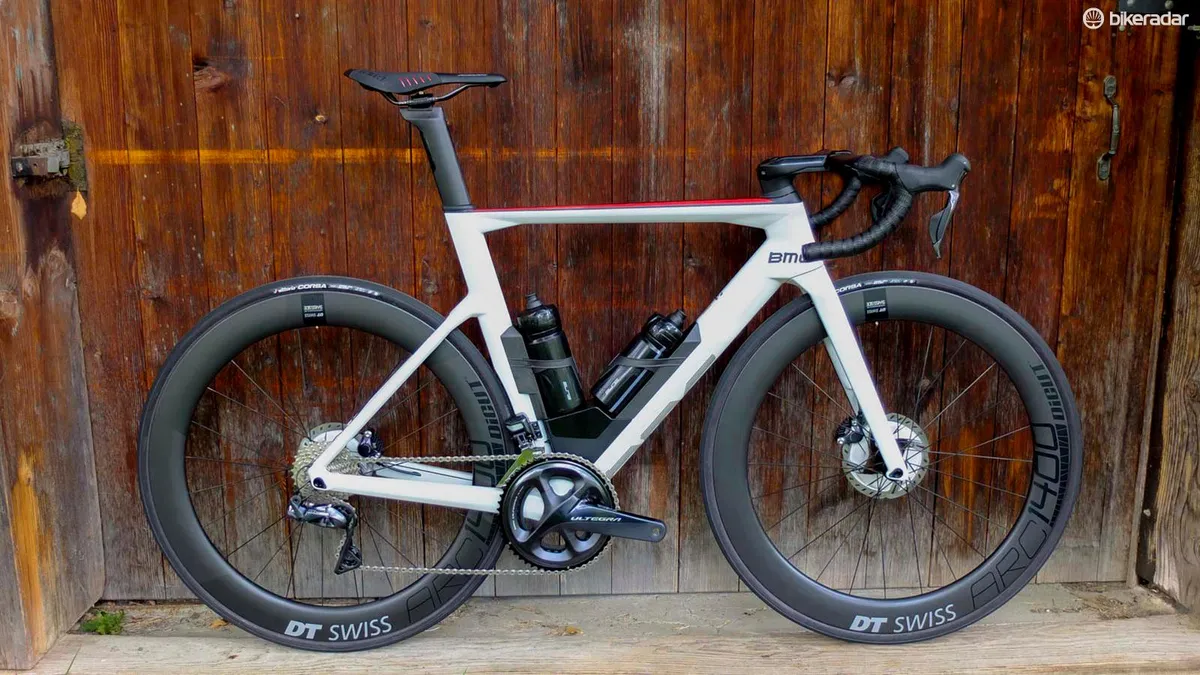
The frameset, cockpit, aero module and wheel rim height are identical for all three models, and the frameset is available separately as a module, including frame, fork, ICS stem and handlebar, aero seatpost, aero module, bottles, saddle and bar tape. Sizes are 48, 51, 54, 56, 58 and 61cm, and all should be available at the start of September.
BMC Timemachine Road 01 pricing
We currently only have prices in Euros, US dollars and Swiss Francs, but will update with more when available.
- Timemachine Road 01 ONE: $12,999 / €11,999 / CHF 12,499
- Timemachine Road 01 TWO: $10,999 / €9,999 / CHF 10,499
- Timemachine Road 01 THREE: $8,499 / €7,999 / CHF 8,499
- Timemachine Road 01 MOD: $4,499 / €4,199 / CHF 4,599
